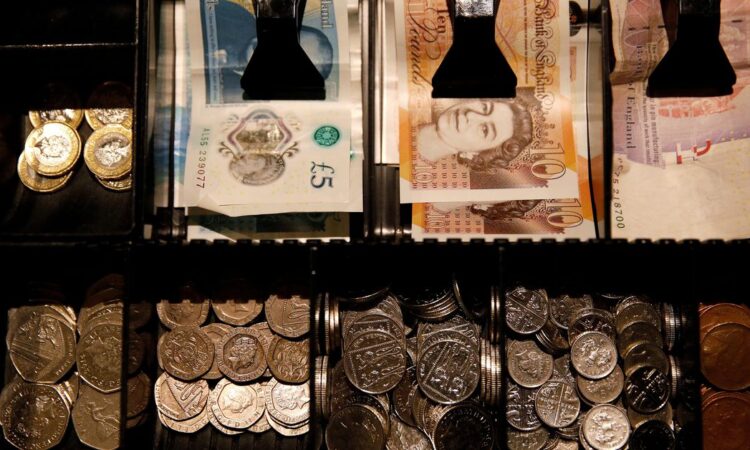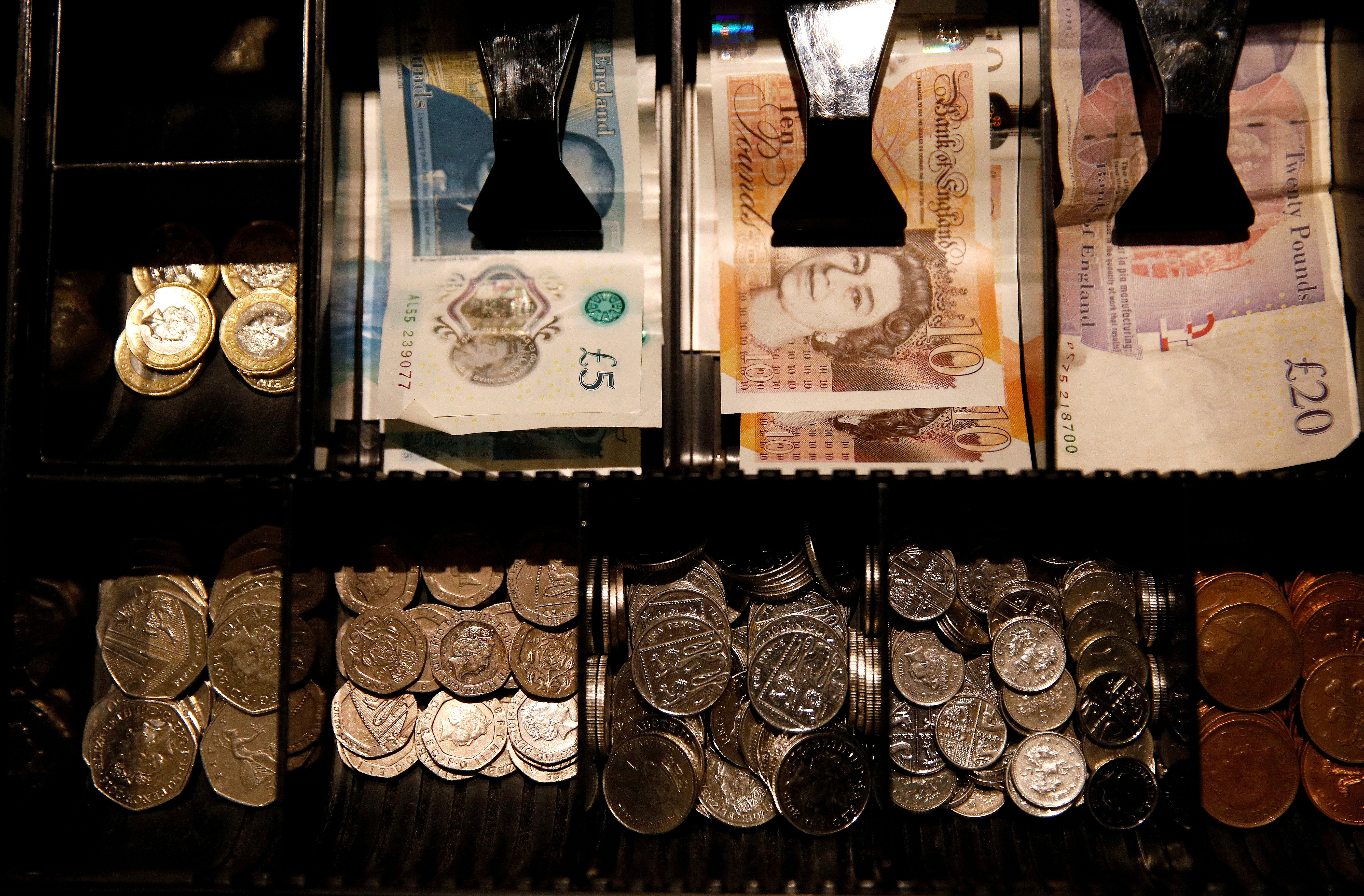

Pound Sterling notes and change are seen inside a cash resgister in a coffee shop in Manchester, Britain, Septem,ber 21, 2018. REUTERS/Phil Noble/File Photo Acquire Licensing Rights
LONDON, Oct 27 (Reuters) – Sterling was headed for weekly declines against the dollar and the euro on Friday after struggling amid a nervous tone in markets that has boosted the dollar, as eyes start to turn to the Bank of England’s meeting next week.
The pound was last down a whisker on the day against the dollar at $1.2120, but set for a weekly fall of 0.37%, and heading for a monthly drop of around 0.7% due to earlier declines.
It is close to a six-month low of 1.2039 hit earlier in October.
There has been few specific British factors to have moved sterling this week since Tuesday’s jobs data that showed the labour market has lost some of its inflationary heat.
That sent the pound lower as it underscored market expectations that the BoE will keep rates on hold at its meeting next week.
That absence of domestic news left the British currency at the mercy of global flows, notably the broadly stronger dollar, whose gains in recent months have been underpinned by the sell-off in the U.S. Treasury market that sent benchmark yields past 5% at one point this week.
Jitters in the stock market, and the war in the Middle East, have also not helped sterling, which is among the more vulnerable major global currencies to declines in market sentiment.
Domestic factors will be more important for the pound next week, with BoE rate setters meeting on Thursday, where their updated macro economic projections will also be released.
Markets have revised their expectations that sticky inflation would mean the BoE would have to keep raising rates longer than other major peers.
Market pricing now reflects expectations that the central bank will leave rates where they are and not hike further this cycle. That means, barring surprises, next Thursday’s focus will be on the economic outlook.
“A lot has changed since the (Monetary Policy Committee) last updated its forecasts. A materially lower (benchmark) bank rate path has coincided with a weaker sterling. And commodity prices from oil and gas have picked up, with geopolitical risks coming to the fore,” said analysts at Deutsche Bank in a note.
“All up, the bank’s updated conditioning market assumptions will likely spell some bad news for the MPC’s medium-term inflation forecasts.”
The European Central Bank kept rates on hold at its meeting this week, helping send the euro down 0.17% against the pound.
The common currency rebounded a fraction on Friday, up 0.07% at 87.15 pence, set for a slight weekly gain.
Our Standards: The Thomson Reuters Trust Principles.




